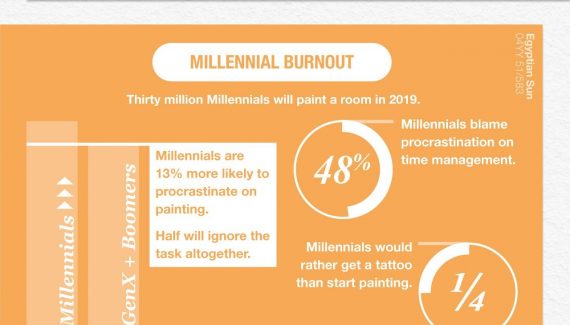The short answer is “It all Depends on You.”
 When shopping for carpet, a lot of people naturally focus on carpet fiber and often assume that nylon is always better than polyester. However, carpet fiber is only one of the factors that you need to consider. Equally important are carpet construction factors like density, filament type and twist level. All of these elements together determine how a carpet will perform and what it will cost. When shopping for carpet, it helps to have a general understanding of these factors in order to make the best decision. In this week’s post, we’ll look the difference between fibers and next week we’ll talk about carpet construction.
When shopping for carpet, a lot of people naturally focus on carpet fiber and often assume that nylon is always better than polyester. However, carpet fiber is only one of the factors that you need to consider. Equally important are carpet construction factors like density, filament type and twist level. All of these elements together determine how a carpet will perform and what it will cost. When shopping for carpet, it helps to have a general understanding of these factors in order to make the best decision. In this week’s post, we’ll look the difference between fibers and next week we’ll talk about carpet construction.
Carpet Fiber: Carpet’s Basic Ingredient
The four basic fibers used in carpet today are nylon, polypropylene (Olefin), polyester and wool. Since synthetic fibers make up 99% of the fiber in the US carpet industry, we’ll focus on them. Each type of fiber has its strengths and weaknesses which determine how it can be used and constructed. Keep in mind there is no perfect fiber and carpet is a fabric that is subjected to incredible abuse – foot traffic, accidental spills and environmental contaminants.
Nylon
Durable, Resilient & Versatile
Nylon is more expensive than other synthetic carpet fibers and is the most commonly used carpet fiber today. Nylon is the most versatile of all fibers, providing flexibility in creating a variety of carpet styles – from sumptuous plush to fashion-forward patterns to low-maintenance loop (Berber). Its strengths include good resiliency, good yarn memory to hold twist, good stain resistance with stain treatment applied, good soil hiding ability, and good abrasion resistance. It is the strongest fiber, making it an excellent choice for heavy traffic areas, active households or commercial facilities.
Be aware that there can be considerable cost differences even between two similar-looking nylon products. Nylon, for example, may be branded or unbranded and, as we mentioned, carpet construction greatly influences value, price and performance. You really can’t judge a carpet by appearance or fiber weight alone. As an example, Shaw’s Anso nylon is a branded, premium nylon and comes with some of the strongest warranties in the industry, including Lifetime Stain and Soil Resistance (even pet urine stains!). Anso nylon carpets cost more, but you’re getting a premium nylon with excellent construction properties and the warranties reflect this. What you care about is that your carpet will look newer longer.
If you are looking for value goods, unbranded nylons offer a considerable benefit for the money. These products may have fewer features and less robust warranties, but you’ll still get the inherent benefits of nylon (durability and resiliency) at a lower price.
Polypropylene (Olefin)
Color Fast, Naturally Stain Resistant, Economical
Olefin is one of the most colorfast fibers on the market. Unlike the other fiber types, polypropylene will not absorb water and must be solution dyed to impart color. Solution dyeing is a pigmentation process in which color is actually built into the fiber when it is formed, thereby becoming an inherent part of the fiber. The color will not fade, even when exposed to intense sunlight, bleaches, or other harsh chemicals. However, since it is not as resilient as other fibers, polypropylene is better suited to low-profile loop (Berber) carpets in which there is less need for superior resiliency. The one exception to this is a type of olefin called “Comfortouch” by Shaw. This new fiber is softer to the feel because it is scoured three times during production. Then the fiber is treated with Shaw’s R2X, a patented Stain and Soil inhibitor for enhanced protection against spills and tracked-in dirt. The result is a fiber that feels like cotton, resists soil and stains, and wears better than other olefin carpet.
Olefin carpets work well anywhere you need fade and stain resistance – in rooms with strong sunlight, indoor/outdoor rooms, kitchens, children’s bedrooms & playrooms, and basements.
Polyester
Exceptionally Stain & Fade-Resistant, Soft, & Budget-Friendly
If you need stain-resistance, this is your carpet! Just to give you an example, we know a customer who spilled hair dye on her 6 month old polyester carpet. Although hair dye is on the list of stains that are NOT warranted, this customer got the stain out with laundry detergent and water. Now that’s impressive!
While not as inherently resilient as nylon, polyester carpets will perform well if constructed well. So choose a polyester carpet with a higher pile and medium-high density to ensure maximum appearance retention and long-term wear. You can also refer to the durability ratings on the back of carpet samples to help you assess how a carpet will stand up to traffic.
If you’ve never considered polyester carpeting before, you might want to look at Shaw’s New ClearTouch carpets which are made of a new type of polyester called PET (Polyethylene Terephthalate). This new polyester “ups the ante” in terms of performance. ClearTouch carpets feature:
- exceptional softness
- natural and permanent stain resistance, including pet urine stains
- improved strength and better abrasion resistance
- excellent appearance retention and long-term wear
- 25% recycled content from recycled soda and water bottles
The new PET polyester carpets pack in a lot of performance for the money! They are a great choice for children’s bedrooms & playrooms as well as for people who don’t want to put a lot money into their carpet. We highly recommend you choose a PET polyester with a higher pile and medium-high density to ensure maximum appearance retention and long-term wear.
Key Takeaway: The type of carpet fiber you want really depends on your priorities and needs. A family room and hallway in an active household may require a better-grade nylon carpet. Some people simply like the peace of mind that nylon’s strong warranties provide. Rooms that are not frequently used may not need a high-performance nylon. For folks on a budget, a tightly twisted, medium dense PET polyester carpet that is multicolored to help hide traffic and soil may be all that you need. As with any large purchase, do your homework, read your warranties and be sure to communicate your needs and wants to your decorating consultant so that he or she can help you make the best choice for your home and family. Tune in next week for Part II: Carpet Construction Basics.



No Responses Yet